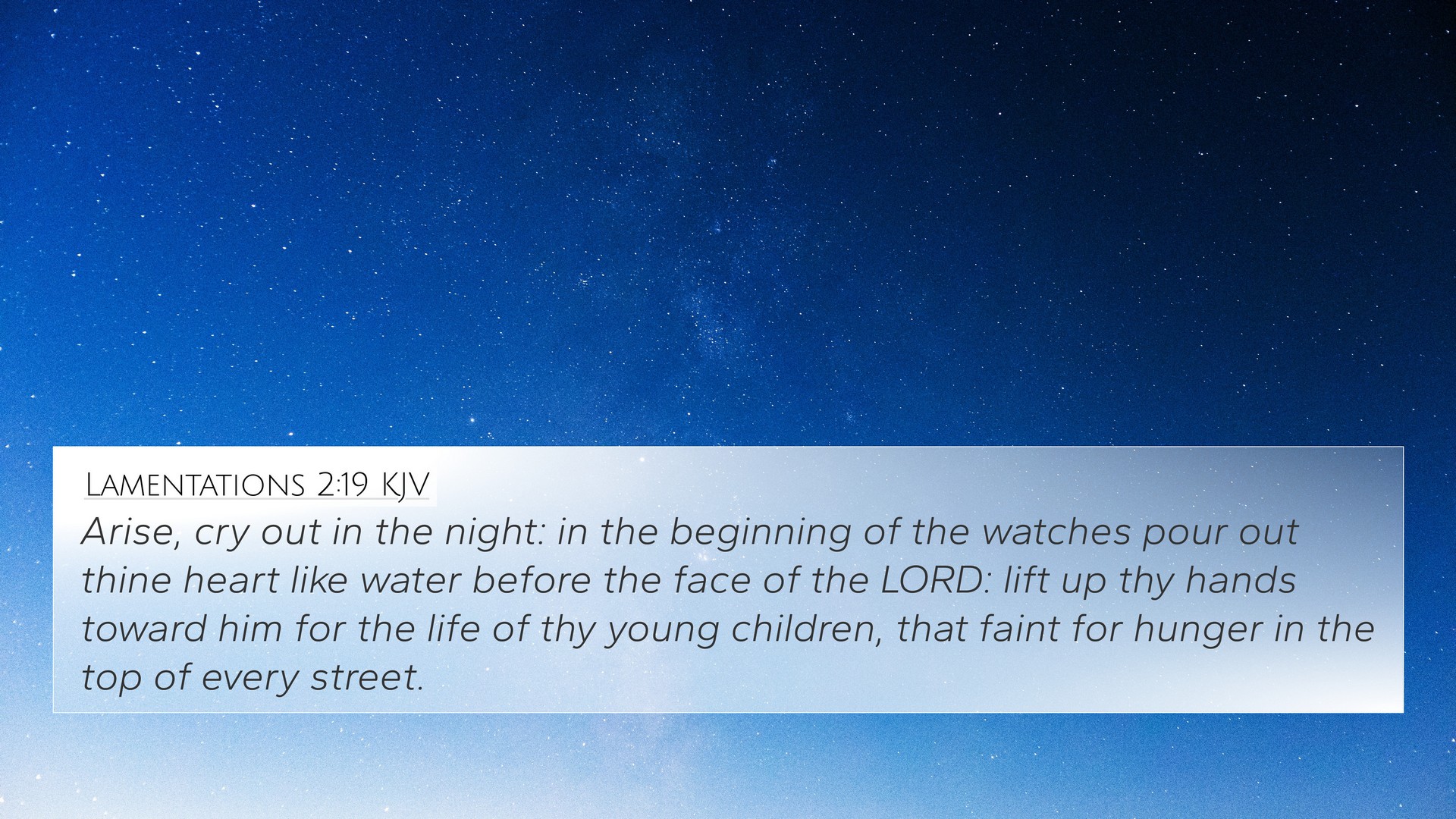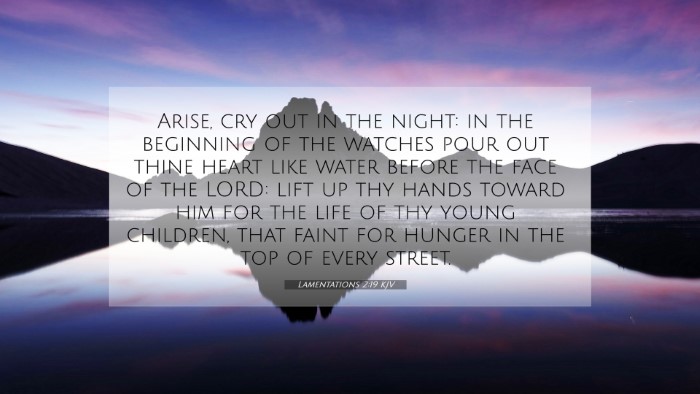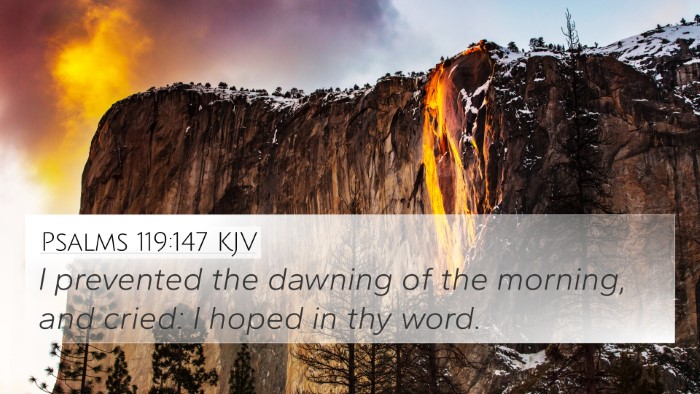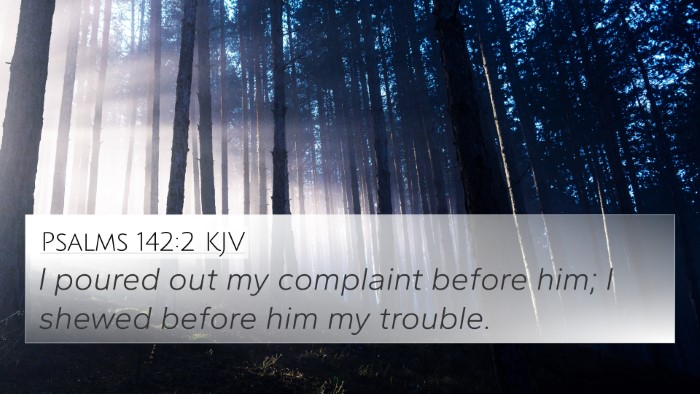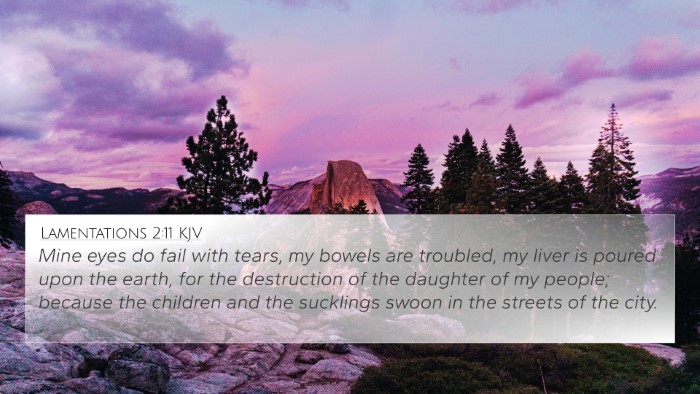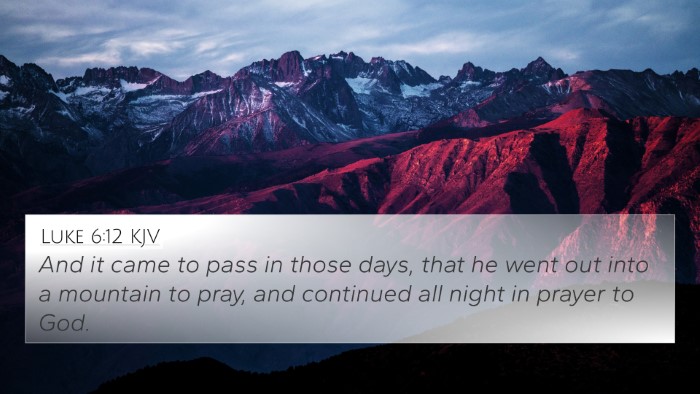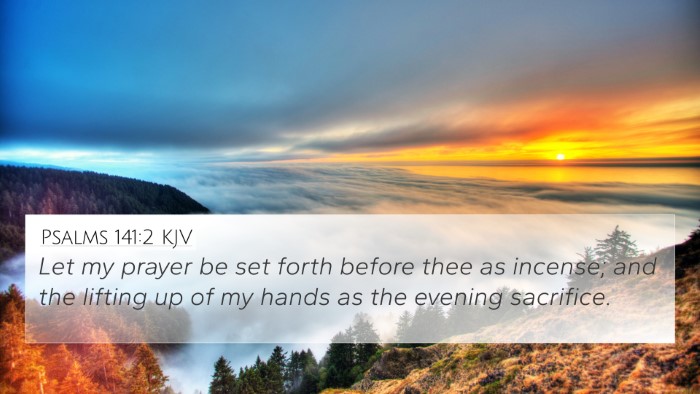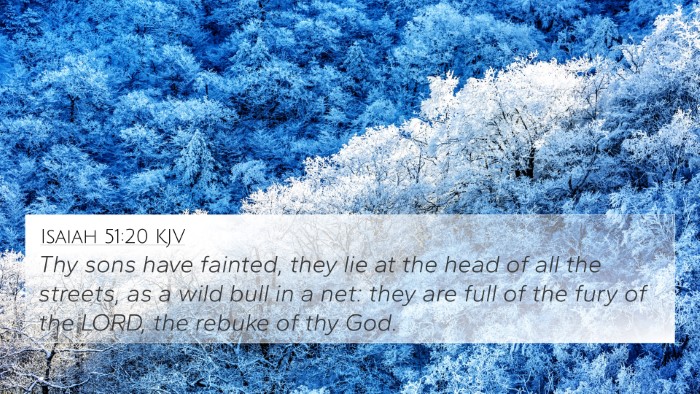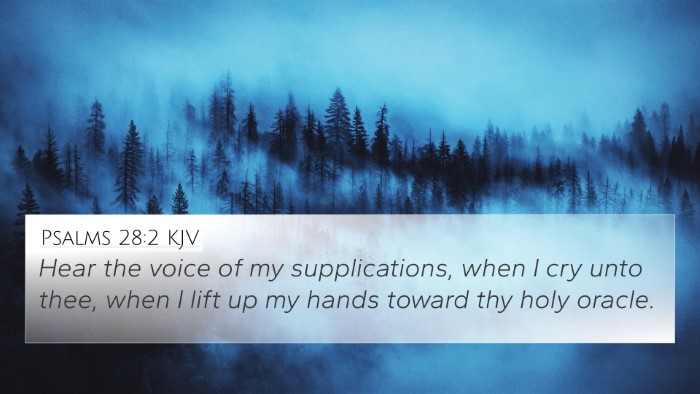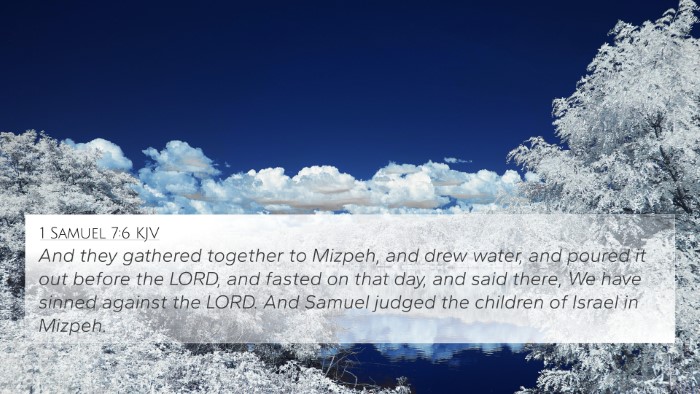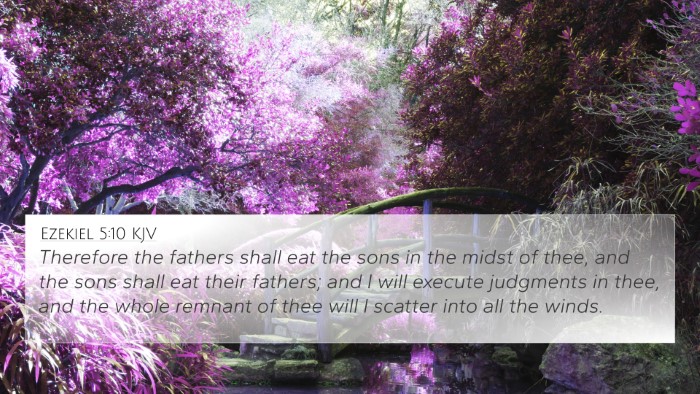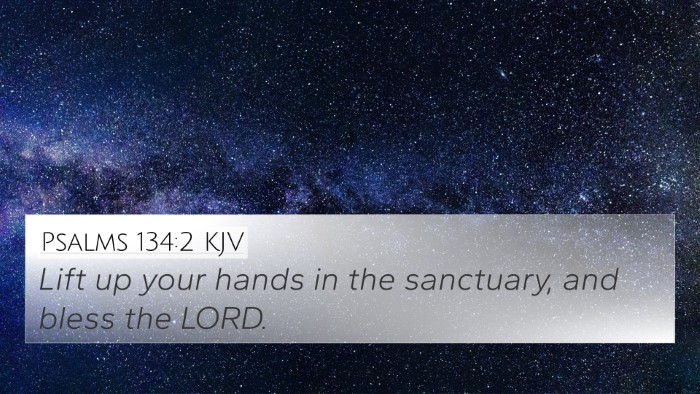Lamentations 2:19 - Meaning and Interpretation
Bible Verse: "Arise, cry out in the night, in the beginning of the watches: pour out your heart like water before the face of the Lord: lift up your hands toward him for the life of your young children, that faint for hunger in the top of every street." (Lamentations 2:19)
Summary of the Verse
Lamentations 2:19 captures a profound moment of grief and desperation experienced by the people of Jerusalem as they reflect on their suffering, especially the plight of their children. The imagery in this verse conveys a sense of urgency and pleading before God amidst devastating circumstances. The act of crying out and pouring out one's heart symbolizes deep sorrow and the need for divine intervention.
Interpretation and Commentary Insights
This verse can be understood through insights drawn from esteemed public domain commentaries including those by Matthew Henry, Albert Barnes, and Adam Clarke.
Matthew Henry’s Commentary
Henry emphasizes the urgent call to express one's grief openly. He highlights the importance of crying out to God in anguish, implying that God listens to the cries of the broken-hearted. The act of pouring out one’s heart signifies an unfiltered admission of pain and a seeking of comfort. This verse reflects both personal and communal lament, reinforcing the necessity of seeking God during times of tribulation.
Albert Barnes’ Notes
Barnes notes that the 'night' symbolizes a time of darkness and despair in one's life. The appeal to lift hands towards God represents a gesture of supplication and reliance on God's mercy. The mention of children 'fainting for hunger' evokes a visceral image of vulnerability, underscoring the collective suffering of the community. Barnes sees this verse as a call to remember the dire state of the people and the need for divine aid.
Adam Clarke’s Commentary
Clarke interprets the verse as an exhortation to genuine prayer and supplication. He points out that 'pour out your heart' is a metaphor for sincere devotion and the need to be transparent with God. The phrase 'that faint for hunger' draws attention to severe need and human frailty. Clarke emphasizes that crying out to God in such times can bring hope and reconciliation.
Cross-Referencing Biblical Texts
To further understand Lamentations 2:19, it's valuable to consider related scriptures that resonate with its themes of lamentation, prayer, and divine intervention. Below are some significant cross-references:
- Psalms 42:1-2: "As the deer pants for streams of water, so my soul pants for you, my God. My soul thirsts for God, for the living God..." - echoing the longing for God's presence in times of desperation.
- Psalms 62:8: "Trust in him at all times, you people; pour out your hearts to him, for God is our refuge." - aligning with the notion of pouring out one's heart.
- Philippians 4:6-7: "Do not be anxious about anything, but in every situation, by prayer and petition, with thanksgiving, present your requests to God..." - encouraging believers to express their needs to God.
- Isaiah 49:15-16: "Can a mother forget the baby at her breast and have no compassion on the child she has borne? Though she may forget, I will not forget you!" - emphasizing God's unwavering compassion, especially for the vulnerable.
- Lamentations 3:19-23: "I remember my affliction and my wandering, the bitterness and the gall... yet this I call to mind and therefore I have hope..." - reflecting on the struggle yet maintaining hope in God.
- 1 Peter 5:7: "Cast all your anxiety on him because he cares for you." - illustrating God's compassion and the importance of bringing our worries before Him.
- Matthew 5:4: "Blessed are those who mourn, for they will be comforted." - recognizing the blessedness of mourning and the promise of comfort from God.
Thematic Connections
The connections between Lamentations 2:19 and these correlated verses showcase a broader biblical theme of lamentation intertwined with the hope of restoration. The practice of expressing one's sorrows to God is echoed throughout Scripture, demonstrating God's role as a refuge for those in distress.
Importance of Cross-Referencing
The process of cross-referencing biblical texts not only enriches understanding but also provides a network of scriptural dialogues that can reveal deeper truths. Engaging with these themes through various passages allows readers to grasp the fullness of God's character and His responses to human suffering.
Conclusion
Lamentations 2:19 serves as a poignant reminder of the anguish that comes with suffering while also encouraging believers to cry out to God in times of need. By exploring cross-references and thematic connections, we deepen our comprehension of the text and its significance within the broader biblical narrative. The rich tapestry of scripture invites us to reflect on how these verses relate to our lives and faith journeys.
Further Insights on Bible Cross-Referencing
For those interested in deeper study, leveraging tools like a Bible concordance or a cross-reference guide can vastly improve one’s understanding of the interconnections within Scripture. Utilizing these resources facilitates a more comprehensive exploration of biblical themes and encourages personal growth in faith.
